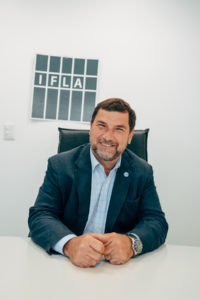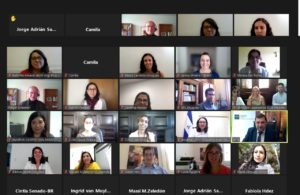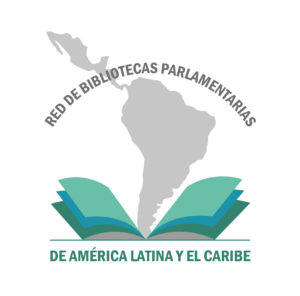Parliamentary Libraries Network: An Interview
17 March 2022
Alejandro Lorenzo César Santa
Chair of the IFLA Latin America and Caribbean Regional Division Committee and General Coordinating Director of Biblioteca del Congreso de la Nación
How was the Network created?
The Parliamentary Libraries Network was born in Valparaíso in 2017. In a Midterm Meeting of the IFLALAC Standing Committee, the authorities and representatives of the Library of Congress of Argentina, the House of Representatives of Mexico and the Library of Congress of Chile decided to give a boost to the work we have been doing at parliamentary libraries in the region and to coordinate efforts to implement new projects. Glòria Pérez-Salmerón, IFLA President-elect, was present at that meeting and she expressed the support of the Federation to this important initiative.
How has the Network evolved throughout the years?
From the moment of its creation, the Network has attracted the interest of parliamentary libraries in the region which decided to join this initiative. Today, more than 15 countries are members of this Network. During these years we went through different stages: promotion, affiliation of institutions and, particularly, formulation of rules and appointment of authorities. Currently, we are holding regular meetings via Zoom not only to share ideas and develop projects but also to invite colleagues and experts from all over the world to keep us informed of new possibilities, tools and potential challenges.
What impact does our participation in the Network have in the work of the Library of Congress?
The Library of Congress has worked hard mainly participating in round tables at regional and global level and identifying strategic partners such as IFLA in order to share our experience and common problems with colleagues abroad. Conversations and meetings with colleagues of the region do enrich our daily work.
What does this mean for representatives and senators?
The Network is an important tool for our legislators as it constitutes a regular channel of communication through which they can access foreign legislation, experiences, exchanges of ideas and researches, and be informed on topics of interest of the countries of our region.
How does the Network relate to the IFLA LAC Regional Division Committee and to the IFLA Library and Research Services for Parliaments Section?
Both the Network and the IFLA Regional Division Committee for Latin America and the Caribbean have created partnerships with other institutions and IFLA Sections. In this sense, we maintain an open communication channel that allows us to have regular interactions on the development of regional events and projects. Moreover, last year we had the pleasure to meet Josefa Fuentes, Chair of the IFLA Library and Research Services for Parliaments Section, to coordinate efforts and be informed of the objectives of this Section.
Which are your plans for the years to come?
Our goals for the years to come are related to the dissemination and visibility of our work in the region, as parliamentary libraries are not fully appreciated. The role of parliamentary libraries, as we all know, is to give advice to those who have the responsibility of preparing the laws which govern people’s lives.
We will soon launch the first certified training course on a global scale for parliamentary librarians coordinated by an Argentine national university and the Library of Congress of Argentina. This course will aim at offering training on legislative reference services at national and provincial level.
What would you recommend to other regions?
We suggest that other regions generate new spaces for discussion and collaboration. It is highly important to share experiences because local problems may be solved taking into consideration similar problems in other countries. Moreover, joining the voices of our institutions at regional level gives us more strength to raise our needs at global level. Working on Advocacy with specific projects that may have an impact on communities should be the main focus in the design of action plans for the whole Network or body aiming at generating a real and effective change.


